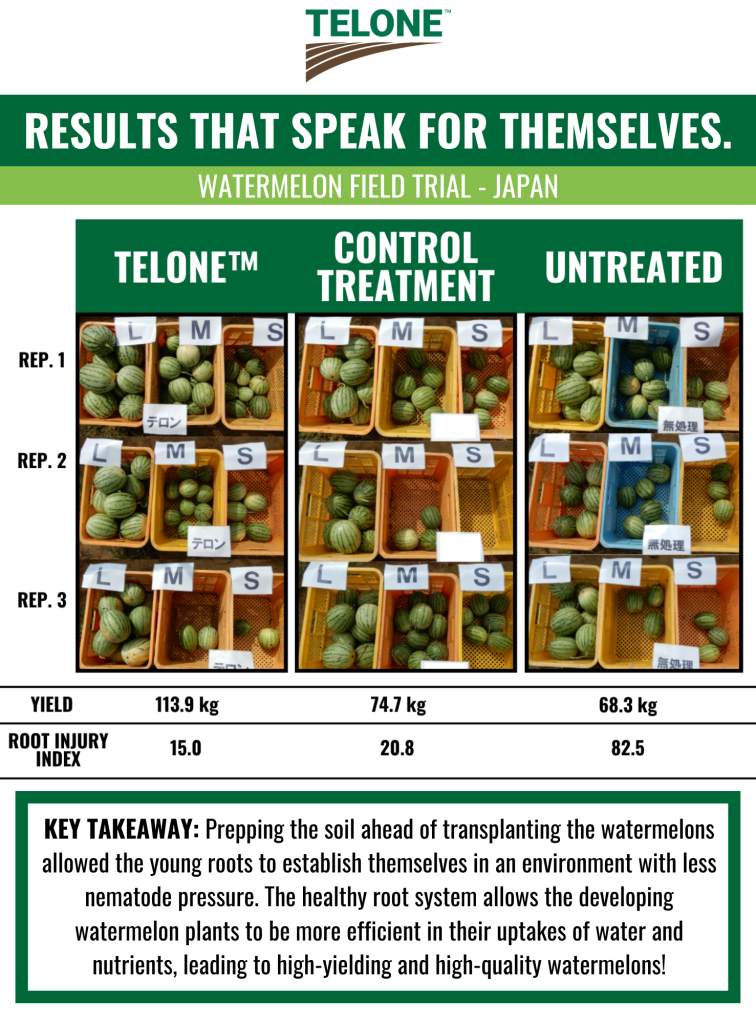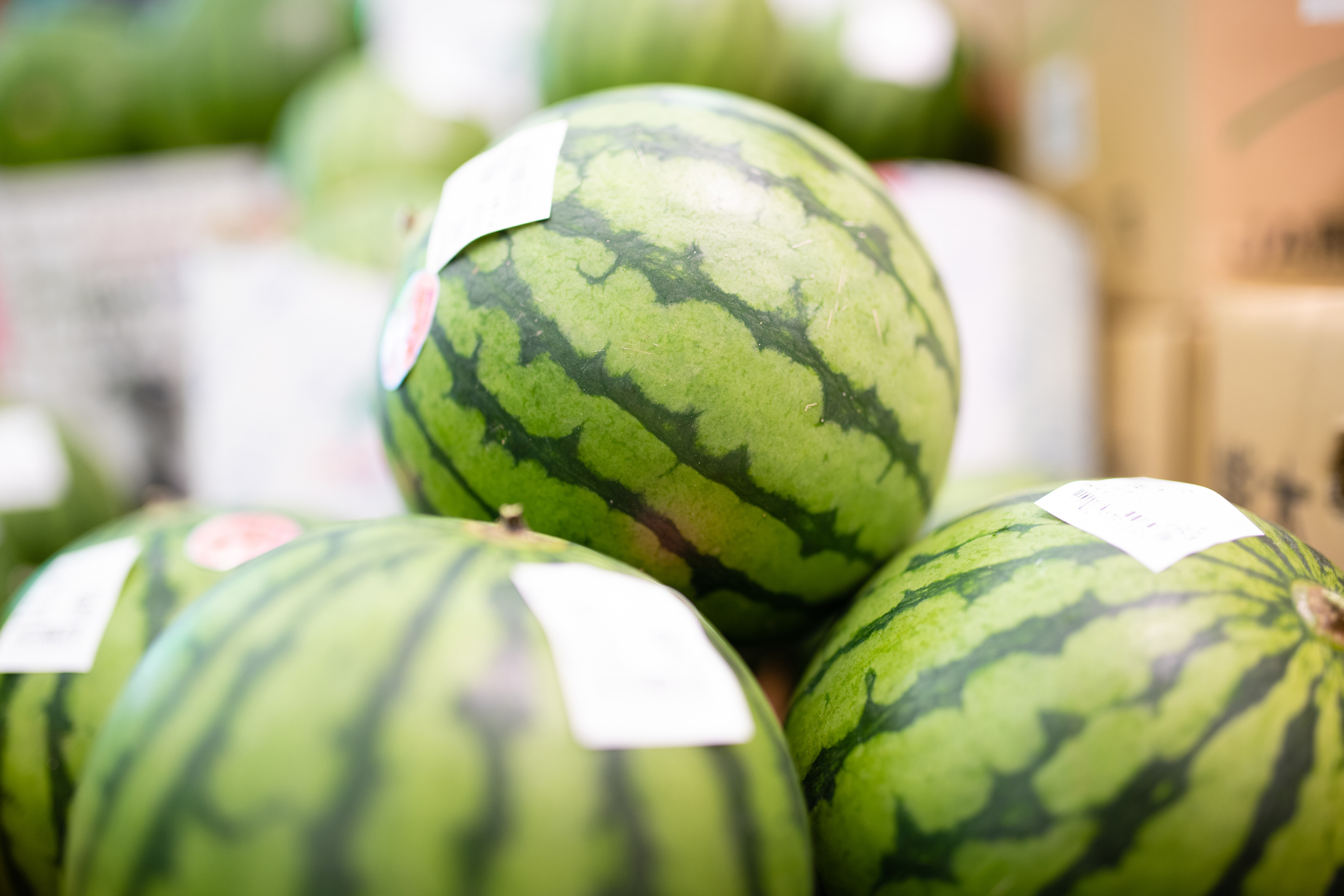Watermelons are a popular crop in Japan. Unfortunately, they are also highly susceptible to destructive root-knot nematodes which negatively impact overall yields and fruit quality.
Japanese growers know that nothing is more effective against nematodes than TELONE™! Using TELONE™ to prep the soil ahead of planting helps lessen nematode pressure, allowing young roots to establish into healthy plants. The results are improved quality, increased marketable yields, and better ROI for the grower.
Our Japanese Team, along with our Director of R&D Dr. Randy H. Huckaba, recently analyzed a watermelon field trial to demonstrate TELONE™’s efficacy.
The trial was done in conjunction with the Japan Plant Protection Association (JPPA) at their research station in Ibaraki, Japan. The trial took place in the summer of 2022, with the soil being treated with TELONE™ in May, ahead of transplants going into the ground in June.
In addition to the TELONE™ treatment, there was a contact nematicide treatment used as the control, as well as untreated transplants for comparison. The trial was evaluated in August, 2022.
The trial was replicated three times and the researchers documented total fresh fruit weight as well as the root injury index. Roots were classified by nematode injury, across a spectrum as described here:
A) No injury
B) A few root-knot galls observed on rootlet
C) Many root-knot galls observed on rootlet
D) A few root knot galls observed on taproot
E) Many root-knot galls observed on taproot
The root-knot injury index was then calculated to express a number on a scale of 100, with lower numbers meaning less root-knot damage, and higher numbers meaning more root-knot damage.
In addition to calculating the Root Injury Index, the R&D team also calculated the size of each watermelon to determine the overall yields by Large (greater than 17cm in diameter), Medium (15-17cm in diameter) and Small (13-15cm in diameter).
As you can see from the results below, the number of root-knot galls on the watermelons grown in soil treated by TELONE™ are less than untreated & control treatment plots. TELONE™ showed excellent efficacy against root-knot nematodes and showed increased yields and more Large-sized fruits than either the untreated or control treatments.

The key takeaway is this: Prepping the soil ahead of transplanting the watermelons allowed the young roots to establish themselves in an environment with less nematode pressure. The healthy root system allows the developing watermelon plants to be more efficient in their uptakes of water and nutrients, leading to high-yielding and high-quality watermelons!
Visit www.teleosag.com to learn more about TELONE™ and how prepping your soil upfront is the key to a successful watermelon season!
Remember, there’s no coming back from a poor start!
Disclaimer:
The resources and information provided are meant purely for educational discussion, contains only general information about legal matters, and is not to be construed as advice. Please note that any information or resources provided are not legal or regulatory advice, and should not be treated as such. You must not rely on the information provided as an alternative to legal advice from your attorney or other professional services. Teleos Ag encourages readers to consult with counsel, and their local, county, and state regulators. We make no representations or warranties, express or implied, in relation to the information provided through our resources and blog posts. It is the readers responsibility to know the laws related to 1,3- D, appropriate PPE, Licensing, etc., in his or her City, County, State, and Country.
- ALAN SCHREIBER, INDEPENDENT WA POTATO RESEARCHER, RELEASES 2025 NEMATICIDE DATA - December 29, 2025
- Advancing Soil Health in Europe: Teleos Ag Solutions’ Commitment to Sustainable Agriculture - April 11, 2025
- Functional Sustainability: How Using TELONE™ Can Lower Water and Fertilizer Inputs - February 26, 2025



